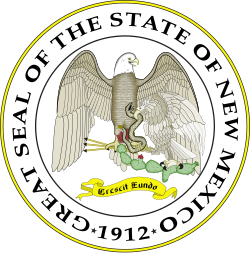| |||||||||||||||||
| |||||||||||||||||
 County results Bingaman: 50–60% 60–70% 70–80% 80–90% | |||||||||||||||||
| |||||||||||||||||
| Elections in New Mexico |
|---|
 |
The 2006 United States Senate election in New Mexico took place on November 7, 2006. The primaries were held June 6, 2006. Incumbent Democrat Jeff Bingaman won re-election to a fifth term in a landslide. This was one of five Democratic-held Senate seats up for election in a state that George W. Bush won in the 2004 presidential election.
Contents
- Democratic primary
- Candidates
- Results
- Republican primary
- Candidates 2
- Campaign
- Results 2
- General election
- Candidates 3
- Campaign 2
- Debates
- Predictions
- Polling
- Results 3
- See also
- References
- External links
As of 2025, this was the last time a Democratic Senate candidate, as well as any candidate in New Mexico, has won all 33 of New Mexico's counties.

